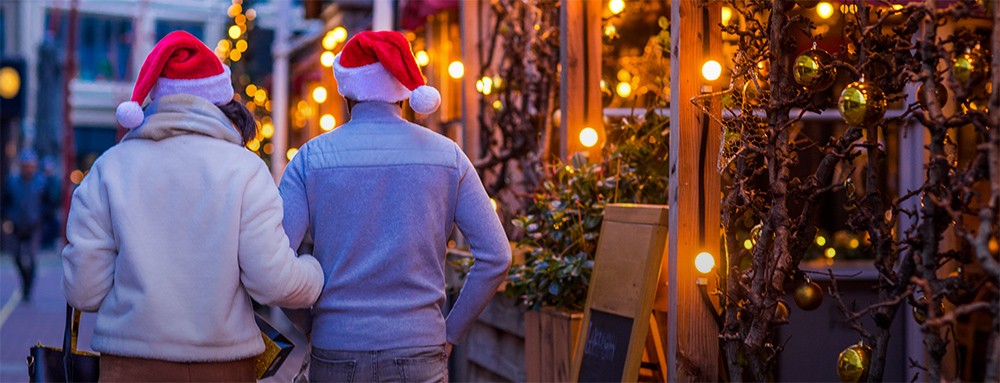Now that travel is opening up, Australians are once again able to head overseas to visit family during the holiday season. We want to make sure you have a safe and successful trip. The better prepared you are, the safer and more enjoyable your travel will be.
Although it’s not festive to think about, there are some risks that are greater during the holiday season, including
Terrorism
Terrorists continue to carry out attacks around the world. The threat of terrorism can rise during the holiday season. Terrorists have targeted Christmas markets and places of worship. Many attacks have been by lone actors or small groups. They’re increasingly using less sophisticated methods of attack, including knives, firearms, and vehicles. They target both locals and foreign tourists. Such attacks are difficult to predict or prevent.
You might find there’s increased security in places over the festive period, including at
- Christmas markets
- shopping malls
- airports
- clubs
- restaurants
- places of worship
- transportation hubs
and other soft targets frequented by tourists or major events that might attract large crowds.
Reducing your risk
The Australian Government can't guarantee your safety and security in another country. To reduce your risk of being caught in a terrorist incident:
- be alert to possible threats, especially in public places or mass gatherings
- report anything suspicious to police
- monitor the news for any new threats
- take official warnings seriously
- follow the instructions of local authorities
If there's a terrorist attack or incident, leave the immediate area as soon as it's safe. If the incident isn't in your immediate vicinity, avoid the area where it happened and monitor the media for updates.
More information:
- Read our general advice on terrorism
- Find out what to do if there’s a terrorist situation
Extreme weather
Some northern hemisphere destinations experience extreme weather during winter. Aside from impacting air travel and road travel, it can bring serious health and safety risks if you're not prepared.
The South Pacific tropical cyclone season normally runs from November through until April. All islands in the South Pacific can be affected by cyclones.
Bad or severe weather can cause travel delays in any season. During the holidays, airports and roads are often already busier than normal. Before you travel, check the forecast for your departure, and the airport in your destination. Airlines may cancel flights when there's a severe weather incident. This includes flights in and out.
Understand that driving and riding overseas can be very different from back home. In winter, roads can be icy. In some countries you need to use winter tyres. You need insurance whether you're driving, riding or a passenger. Otherwise, all your costs are on you.
More information:
- Read our general advice on severe weather
- Learn what to do if there’s a severe weather event
Crime
Rates of petty crime can increase during the holiday season. This includes pickpockets and bag snatchers. Most of these criminals are opportunistic. Take extra precautions to protect yourself and your belongings during this time.
- Before you go, research your destination. Find out if theft, robbery and muggings are common in particular places.
- While you’re away, keep money and valuables out of site. Avoid looking like a tourist.
- Carry authenticated copies of your travel documents with you when out and about. Leave the originals in your hotel safe.
- Stay alert in public places. Especially where there's lots of people, including other tourists.
- While it’s tempting to celebrate the season with a drink, go easy on the alcohol. Drunk and disorientated travellers are easy targets for criminals. Especially for robbery and assault.
Be aware that some destinations have strict laws about alcohol consumption. Read the travel advice for your destination to make sure you’re not breaking the law. And remember that driving with alcohol in your system may void your travel insurance in the event of an accident, as well as get you in trouble with the local law enforcement.
More information:
- Read our general advice on theft, assault, partying safely and local laws
- Learn what to do if you’re the victim of a crime overseas
Tips before you go
- Read the travel advisory for your destination and research the common risks.
- Read our step-by-step guide to planning travel during COVID-19.
- Subscribe to get an email when we update the travel advice for your destination. Add your local phone number to receive SMS critical alerts in a crisis.
- Get travel insurance before you go. Make sure your insurance policy covers you for cancellations, or changes. Understand that most insurers exclude claims relating to acts of terror or severe weather while you're away. Check the fine print.
- Be aware of scammers. Scammers especially take advantage of the influx of tourists.
Read more
- See our general advice about staying safe and avoiding danger.
- See our general advice for taking care of your health.
- See our advice about partying safely.
- Understand how and when we may help. Before you go, read the Consular Service Charter.

